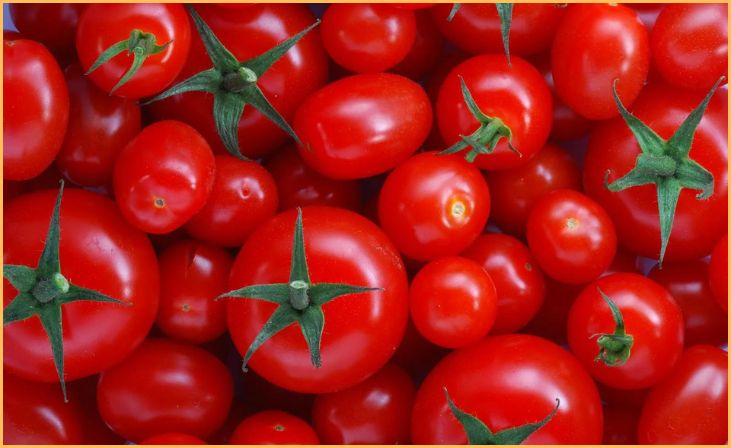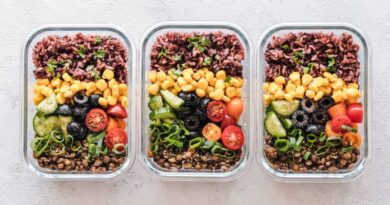In the realm of culinary practices, the refrigerator is often deemed a sanctuary for preserving freshness and extending the shelf life of various food items. However, not all foods benefit from the chilly confines of the fridge. Some ingredients, when subjected to cold temperatures, undergo changes in texture, flavor, or even nutritional composition. In this blog post, we’ll uncover five foods you should avoid refrigerating. From tomatoes to bread, understanding which items fare better outside the refrigerator can lead to a more flavorful and enjoyable culinary experience.
Let’s explore the nuances of proper food storage to optimize taste and maintain the integrity of these kitchen staples.
Top Foods You Should Avoid Refrigerating
While the refrigerator is an essential appliance for preserving the freshness of many foods, there are certain items that should not be stored in cold temperatures. Refrigeration can alter their taste, texture, and overall quality. Here are five foods that you should avoid refrigerating to ensure optimal taste and enjoyment.
1. Tomatoes

Tomatoes, with their vibrant hues and robust flavors, are culinary gems that deserve careful consideration in storage. Refrigerating these luscious fruits, however, can prove counterproductive to their taste and texture. Cold temperatures disrupt the delicate chemical reactions responsible for the rich, sweet, and tangy notes that make tomatoes so appealing. To preserve their natural taste, it’s advisable to keep tomatoes at room temperature in a cool, dry environment.
By forgoing the fridge for tomatoes, you ensure they maintain their full flavor potential, ready to elevate your salads, sauces, and sandwiches. Embrace the art of mindful storage to unlock the true essence of tomatoes, allowing their freshness to enhance your culinary creations and contribute to a more delightful dining experience.
Quick Link: The 5 Best Foods to Help Fight Stress
2. Potatoes
The humble potato, a versatile staple in countless dishes, demands thoughtful consideration in storage to maintain its optimal taste and texture. Refrigerating potatoes, while a common impulse, can lead to unwelcome transformations. Cold temperatures prompt the accelerated conversion of starch into sugar, imparting a sweeter taste and compromising the texture when cooked. To safeguard the integrity of potatoes, it’s recommended to store them in a cool, dark place, shielding them from direct sunlight and the chilly embrace of refrigeration.
This simple adjustment in storage practices ensures that the potatoes retain their inherent qualities, ready to be transformed into the perfect mash or roast. Embrace the art of proper potato preservation, and let the natural, earthy flavors shine in your culinary creations, free from the unwanted effects of refrigeration.
3. Onions

While onions are resilient in cool and well-ventilated conditions, the decision to refrigerate them demands careful consideration. Refrigeration can prove counterproductive, fostering moisture buildup that transforms onions into an undesirable mushy texture. The inherent dampness of the fridge accelerates the degradation of onions’ outer layers. To preserve the freshness and crispness of onions, it is advisable to store them in a dry, open container within the confines of a pantry or cupboard.
This simple adjustment shields onions from excess moisture and ensures they remain in optimal condition, ready to impart their distinctive flavors to your culinary endeavors. Embrace proper onion storage to enhance the longevity and quality of this kitchen essential, avoiding the pitfalls associated with refrigeration-induced mushiness.
4. Avocados
Avocados, celebrated for their luxurious creamy texture and delectable buttery taste, demand a nuanced approach to ripening and storage. Refrigerating unripe avocados poses a potential hurdle to their natural maturation, leading to uneven texture and flavor. The key is to allow avocados to ripen at room temperature, fostering their ideal consistency and taste. Once ripe, if not immediately consumed, avocados can be transferred to the refrigerator to extend their freshness. This strategic balance ensures that avocados reach their peak ripeness before the cooling effect of the refrigerator sets in.
Embrace this mindful approach to avocado care to savor the lusciousness of perfectly ripened fruit, free from the pitfalls of premature refrigeration. Let your avocados ripen gracefully, enhancing your culinary experience with their sumptuous texture and rich, buttery flavor.
Also Read: 10 Benefits of Eating Organic Food
5. Bread

While the refrigerator might appear to be a natural choice for keeping bread fresh, it can paradoxically hasten the staling process. The cold, dry conditions within the fridge contribute to bread becoming dry and losing its coveted softness. To uphold the quality of your bread, it is recommended to store it at room temperature, ensuring a more favorable environment for maintaining its texture and flavor. A sealed container or a dedicated bread box provides the ideal conditions, protecting your loaf from the detrimental effects of refrigeration.
By embracing proper storage practices, you can indulge in the pleasure of fresh, soft bread, free from the unintended consequences of chilly confinement. Allow your bread to thrive at room temperature, enhancing your culinary experience with the simple joy of perfectly preserved freshness.
By avoiding refrigeration for these five foods, you can enhance your culinary experiences and enjoy their natural flavors and textures. Proper storage conditions play a significant role in maintaining the quality of your ingredients and dishes, ensuring that you savor every bite to the fullest.
Final Words
In the quest for optimal food storage, recognizing the exceptions to the “refrigerate everything” rule is crucial. By understanding which foods thrive outside the fridge, you not only enhance their taste and texture but also contribute to a more sustainable and mindful kitchen. From tomatoes that retain their juicy sweetness to bread with a perfect crust, these simple adjustments in storage can elevate your culinary experience and minimize unnecessary waste. So, bid farewell to refrigerator-induced mishaps and savor the full potential of these five foods when stored correctly.
FAQs
Tomatoes are highly sensitive to cold temperatures, which can alter their texture and taste. Refrigeration can diminish the natural sugars in tomatoes, leading to a loss of flavor and a mealy texture. It’s best to store tomatoes at room temperature to maintain their taste and quality.
While many types of bread benefit from being stored at room temperature to maintain their texture and flavor, it’s essential to consider factors like humidity. Bread with added preservatives may fare better in the refrigerator, but for artisanal or homemade bread, storing it in a cool, dark place is usually recommended.
Refrigerating honey isn’t necessary and can cause it to crystallize. Honey has natural preservatives that make it resistant to spoilage. Storing honey at room temperature in a sealed container helps maintain its quality and consistency.
Potatoes contain starches that convert to sugars when exposed to cold temperatures. Refrigeration can lead to a sweet or gritty texture in potatoes. It’s preferable to store them in a cool, dark place away from onions, which can cause them to sprout faster.







